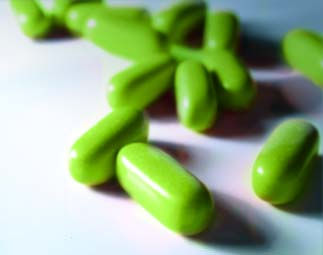 I was standing at the refrigerator door, pouring filtered water into my son’s sippy cup when a terrifying news story from a few weeks ago flashed through my head: “Pharmaceuticals Found in Tap Water” the headlines had screamed. According to the AP report: trace concentrations of heart medicine, infection fighters, estrogen, anti-convulsants, a mood stabilizer and a tranquilizer were found. And a study released by Medco Health Solutions Inc. reported that HALF of all insured Americans were on medications for chronic health conditions. Are you kidding me?
I was standing at the refrigerator door, pouring filtered water into my son’s sippy cup when a terrifying news story from a few weeks ago flashed through my head: “Pharmaceuticals Found in Tap Water” the headlines had screamed. According to the AP report: trace concentrations of heart medicine, infection fighters, estrogen, anti-convulsants, a mood stabilizer and a tranquilizer were found. And a study released by Medco Health Solutions Inc. reported that HALF of all insured Americans were on medications for chronic health conditions. Are you kidding me?
That’s an awful lot of chemically-laced poop and pee (as we say in my house) being flushed each year. For some reason when the story broke it didn’t hit home to me. I don’t live in a metropolis, but as I stood there with that sippy cup I realized I don’t want my son drinking birth control pills, no matter what the dosage level. And what if he had been exposed to this when he was an infant? It’s enough that I have to worry about wiping down the grocery cart or throwing out plastics that may contain BPA – but tranquilizers in my water supply? It’s hard enough being a parent. I should not have to worry about my child drinking a banana-strawberry-kiwi-estrogen shake as a snack. After raving around my kitchen I decided to see what, if anything, I could do about this.
- Here’s what I found:
- 1) The nice people at your local water company will actually answer your questions about the water supply – but – unless you live in a large metropolitan area, odds are that your water company does not test for these types of contaminants.
- 2) While it’s not perfect (there is water waste involved) reverse osmosis filters will remove pharmaceuticals from the water. Home systems range in price and the more expensive filters contain a UV light filter to kill the extra crud the filter can’t extract.
The sucky side to all of this is the waste water that’s created. A small percentage is deemed drinkable – the rest goes into your septic system, or city water supply. That kind of defeats the purpose in my mind because while it is keeping you and your family healthy, you just discharged bad things back out into the water supply. I’m not sure what the alternative is though. I mean, you don’t want to pour pill-laden water onto your houseplants or out in your yard – it will just leach back into the groundwater supply. Hopefully these chemicals will further break down as they are continually filtered.
Until there is a better option I think I’m going to add “reverse osmosis filter with UV light” to my annual birthday list (sexy huh?) and encourage everyone I know to pop less pills.
Image Credit: Greencolander on Flickr by Creative Commons License.
I never thought about the types of contaminants that are in water. it is scary to think that any of these chamicals are in tap water that we drink and give to our young too.
does boiling water get rid of any of these chemicals (or does that just cook them up a bit)?
I know! It makes sense though. We are ingesting all this medication, and it doesn’t just disappear when it enters the water treatment process. I find the APs study to be really disturbing – on many different levels. One thing that really bothered me was learing that underground aquifers are being impacted by this. I suppose this is due to leaching from septic systems.
Boiling water will kill bacteria and other “yucky stuff” but won’t filter out these chemicals.
I also learned something very disturbing at a recent Earth Day Festival that is really adding to this problem. People are actually dumping their unused medications down the toilet instead of disposing of them properly! That means a ton of full strength medication is being put into our water systems daily…very upsetting!
Thanks for sharing Amber! That’s shocking. Why would you dump prescriptions down the toilet? This sounds like a great follow-up.
When I asked how to properly dispose of unused medication, our Wal-Mart pharmacy said to flush it down the toilet! I knew that was wrong, so I searched the internet for advice. I think I ended up throwing it in the trash. I just wonder how many pharmacists are telling people to flush meds.
I was wondering what people have found for a reverse osmosis filter with UV light? I’ve done some searching online, but wondered if there were a brand that seems worthy of the purchase.
Thanks!
Lara
This is probably a very silly question… but how do you dispose of unused medication? We usually just add half used medication to the first aid box – do they go out of date? We would never flush them down he toilet or bin them but how are you supposed to dispose of them?
Reverse osmosis is very acidic, and is called aggressive water. I am looking into carbon block filters, but they likely don’t remove pharmaceuticals. Leaches minerals from your body. Take meds to a pharmacy, they will dispose for you if you don’t know.